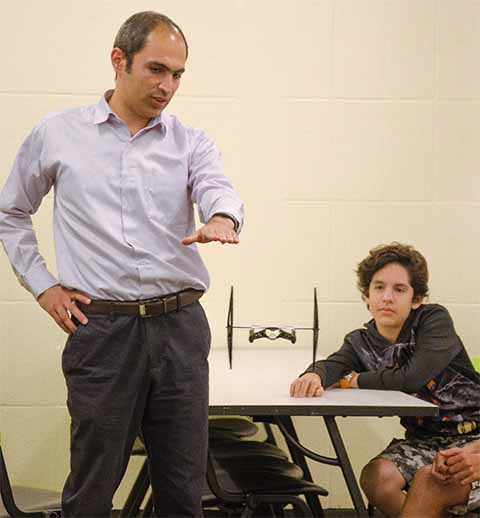Black and Decker funds LU to improve application of artificial intelligence
Dr. Hassan Zargarzadeh, assistant professor in electrical engineering, has been awarded to enable LU’s Robotics and Intelligent Control Systems Lab to pioneer research in artificial intelligence. Black and Decker’s

CRC-Evans Oil and Gas has awarded $97,949 for Zargaarzadeh’s grant proposal titled, “Performance improvement of the CRCE's artificial intelligent engine for detection and classification of weld defects and characteristics in radiographic images.”
Zargarzadeh’s research addresses one of the most time-consuming and labor-intensive processes in the oil and gas piping, which is inspection of the pipe welds. Currently, after X-raying the welds, multiple human inspectors must inspect each weld to find its defects or approve its health. The software developed at LU will significantly reduce the time required for processing the X-ray images and spotting the defects and their type for the inspectors.
“This software is the first of this kind. We believe that it will have a significant impact on the cost, time and quality of the oil and gas transportation pipeline construction and inspection,” said Zargarzadeh, an assistant professor in electrical engineering.
Since 2017, student researchers of LU RICS have been funded to conduct research in the field of artificial intelligence with applications to robotics and automation systems. The latest research, resulting in this significant grant award, is at the cutting edge of the technology.
“As a result of the work that we have done in artificial intelligence, our RICS graduates were able to land jobs in high-tech companies,” said Zargarzadeh. “In fact, because of our research since 2017, Black & Decker’s engineers came across one of my articles that, for the first time, was using deep learning for inspecting the road condition using drones real-in-time. They were not able to locate any other research more advance than what was done at LU.”
The most recent grant is to fund the development of the artificial intelligence software. In the first phase of funding, LU delivered a trained neural network that can locate and identify defects in the pipe weld X-ray images.
“As this phase, we will improve the resolution of the results and deliver a firmware that can be implemented on the company’s hardware,” said Zargarzadeh. “I am very proud that LU’s proposal was announced as the winner among many other well-known universities and contractors in this field.”
The final deliverable will be in the form of source code in MATLAB, Python and dynamic link library file that can be integrated into the CRCE software packages.